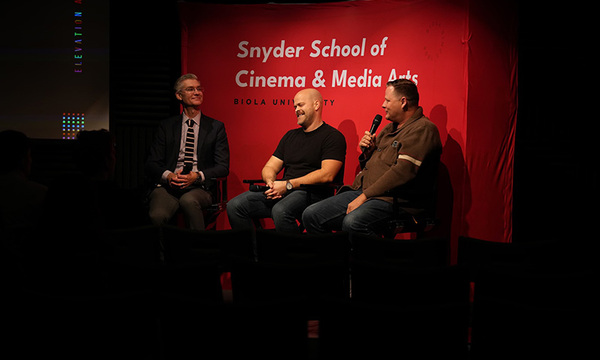Young Americans are slowly shifting the U.S. towards becoming a less religious nation, favoring atheism and religious “nones” over organized religion, according to a recent study released in November 2015 by The Pew Research Center. However this doesn’t mean that the masses are turning away from God, according to Brad Christerson, professor of sociology.
Christerson believes that while there is a rise in people who do not identify with a particular religion, the number of people who believe in God has not significantly dropped.
“It's not that most of these unaffiliated people have been convinced that God doesn't exist, it's just that people are not drawn to organized religious groups as much as they once were,” said Christerson.
The 2014 U.S. Religious Landscape Study comes seven years after the first Religious Landscape Study, conducted in 2007. The new extensive research shows that the number of American adults who claim to be Christian has dropped from 78.4 percent in 2007 to 70.6 percent in 2014. This drop is speculated to come from the growing number of young Americans who are backing away from religion, claiming themselves instead as religiously unaffiliated.
The study notes that the religiously unaffiliated, including atheists and those who refer to their religion as “nothing in particular” has increased 6.7 percent in the last seven years. Numerous studies over the last few years have been tracking America’s declining religious commitment. In 2013, Pew released a study which found 50 percent of U.S. adults believe “more people who are not religious” is a good thing or doesn’t matter for American society.
Monica Lee, a public relations major at Biola, agrees with Christerson. She said, “Similar to how our oral culture has shifted to a technological culture, I feel that the heavy burden of keeping sacraments and other traditional practices has significantly shifted.”
Lee points out that the millennial generation may not be as focused on regularly attending church services and upholding traditional practices as generations before have, instead they are finding other ways to draw close to God.
Christerson also says he believes the millennial generation is fixated on finding a different way to draw closer to God.
“Young people are looking for a more experiential faith, more direct contact with the supernatural, more opportunities to participate, and less drawn to traditional congregational structures and activities such as going to church services where they listen to experts teach sermons,” he said.
Both Christerson and Lee agree that millennials are shifting away from traditional church practices, and that could potentially be reflected in the numbers of religious adults found in Pew’s latest research. The religious landscape of the U.S. may be changing, but that doesn’t mean that we are headed towards becoming a non-religious nation over all.
According to the study, “among the roughly three-quarters of U.S. adults who do claim a religion, there has been no discernible drop in most measures of religious commitment. Indeed, by some conventional measures, religiously affiliated Americans are, on average, even more devout than they were a few years ago.”
“The numbers are less earth shattering than the headlines suggest,” Christerson said. “The numbers present a challenge to churches who need to find ways of engaging those who believe God is there, but don't know how to connect to or experience Him.”
Written by Brittney Morales, iBiola intern and Jenna Loumagne, media relations specialist. For more information, contact Jenna Loumagne at (562) 777-4061 or jenna.l.bartlo@biola.edu.
 Biola University
Biola University
_(1).jpg)
